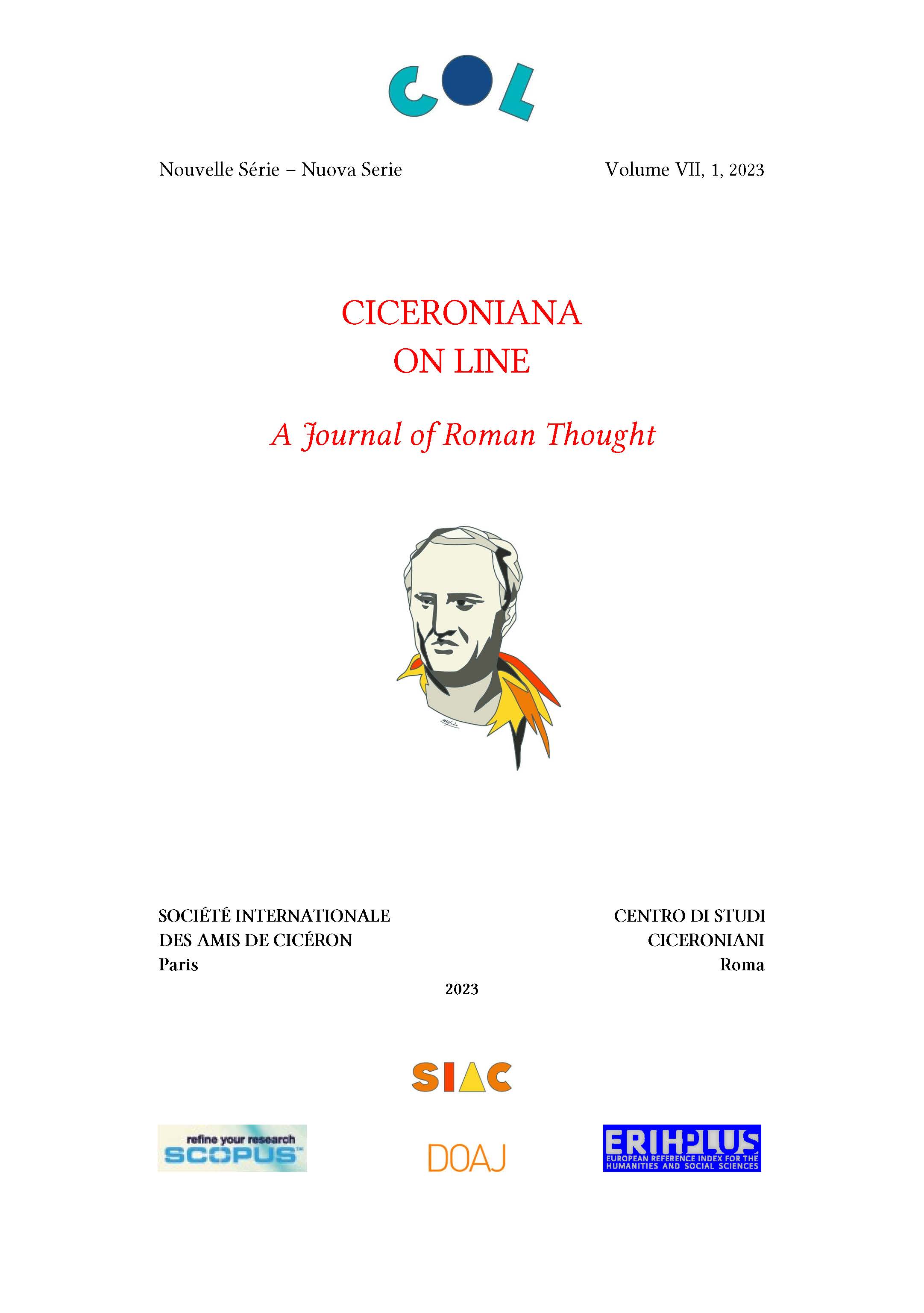From aesthetics to the ethics of ugliness: three personae de mimo in Ciceronian orations
DOI:
https://doi.org/10.13135/2532-5353/7735Abstract
This article examines some Ciceronian witnesses from three different speeches in which Cicero refers to three of the main characters in the contemporary sociopolitical context, portraying them as mimic actors and actresses. These three characters are not professional actors, but on the stage of life they act as if they were: the first is Mark Antony, who in the Philippcs is not only flanked by mimic actors, but in some accounts seems to play their role himself; then comes Clodia, who in the Pro Caelio is depicted as archimima, a figure who held both for the roles of protagonist and director of the mimic plays; the last character analyzed is a collective character, the Alexandrian ambassadors, who in the Pro Rabirio Postumo are portrayed in mimic and gestural attitudes similar to those of actors. The aim of the article will be to show that Cicero uses the comparison with mimes in a degrading way and, consequently, that in the portrayal of these characters as actors can be seen an ethical extension of Aristotle’s aesthetic theory of comedy.
Downloads
Downloads
Published
How to Cite
Issue
Section
License
Authors who publish with this journal agree to the following terms:
- Authors retain copyright and grant the journal right of first publication with the work simultaneously licensed under a Creative Commons Attribution License that allows others to share the work with an acknowledgement of the work's authorship and initial publication in this journal.
- Authors are able to enter into separate, additional contractual arrangements for the non-exclusive distribution of the journal's published version of the work (e.g., post it to an institutional repository or publish it in a book), with an acknowledgement of its initial publication in this journal.


 Ciceroniana On Line is recognised by ANVUR (the National Agency for the Evaluation of the University System and Research) as a CLASS A journal for the Sciences of Antiquity, Philology, Literature and History of Art (
Ciceroniana On Line is recognised by ANVUR (the National Agency for the Evaluation of the University System and Research) as a CLASS A journal for the Sciences of Antiquity, Philology, Literature and History of Art ( The journal is included in DOAJ. The DOAJ listing of the journals is available at
The journal is included in DOAJ. The DOAJ listing of the journals is available at  The journal is indexed in
The journal is indexed in  The journal has been included in ERIH PLUS. The ERIH PLUS listing of the journals is available at
The journal has been included in ERIH PLUS. The ERIH PLUS listing of the journals is available at 

